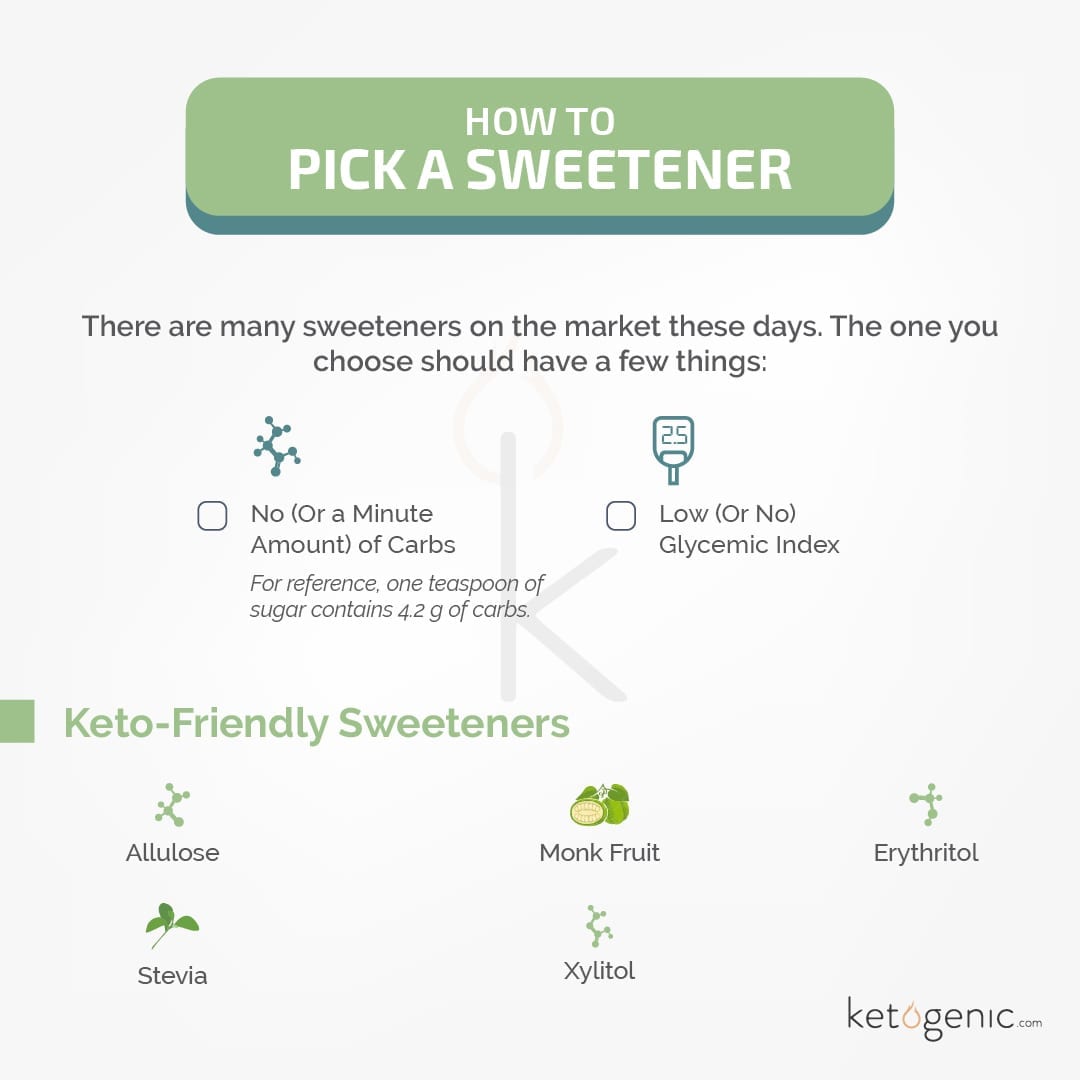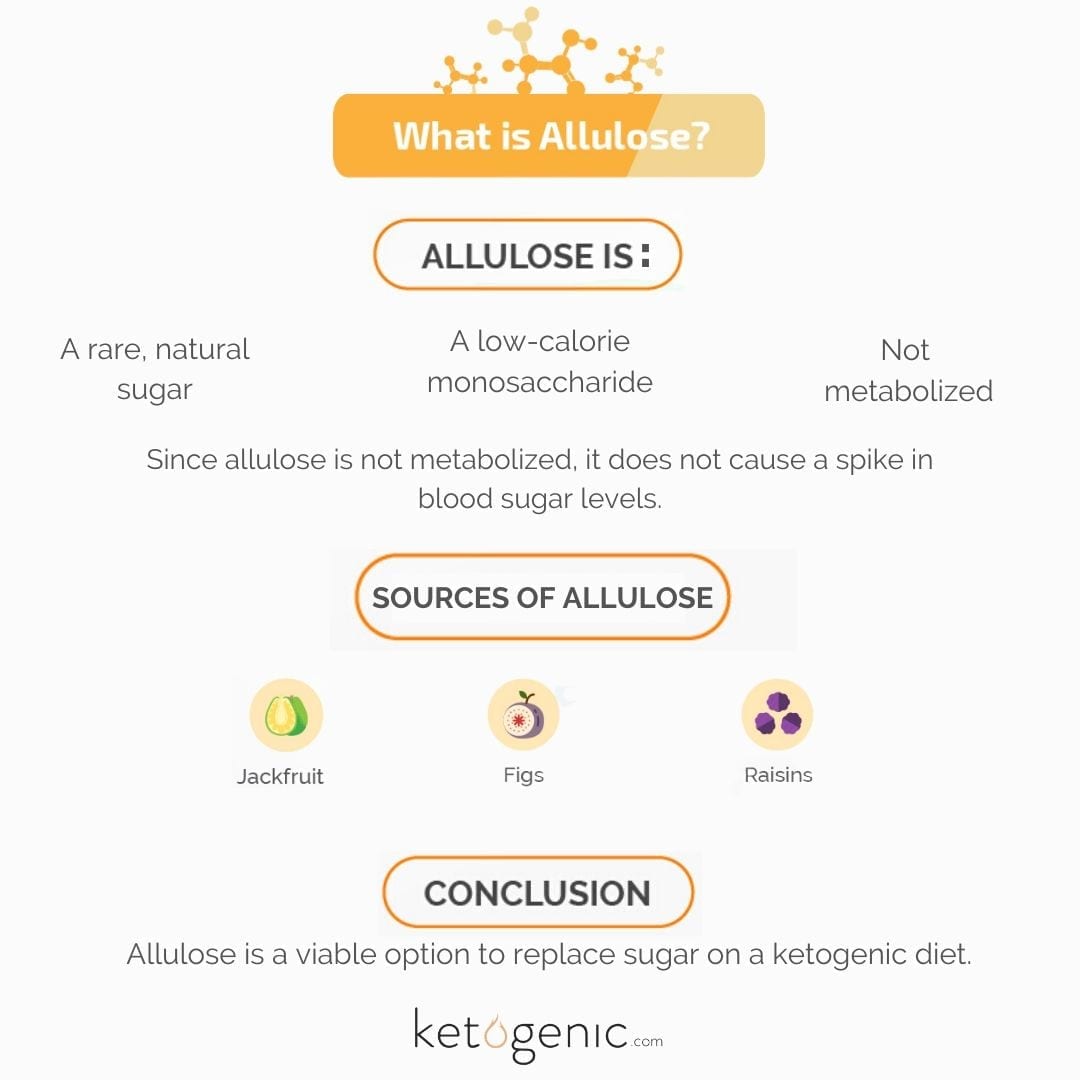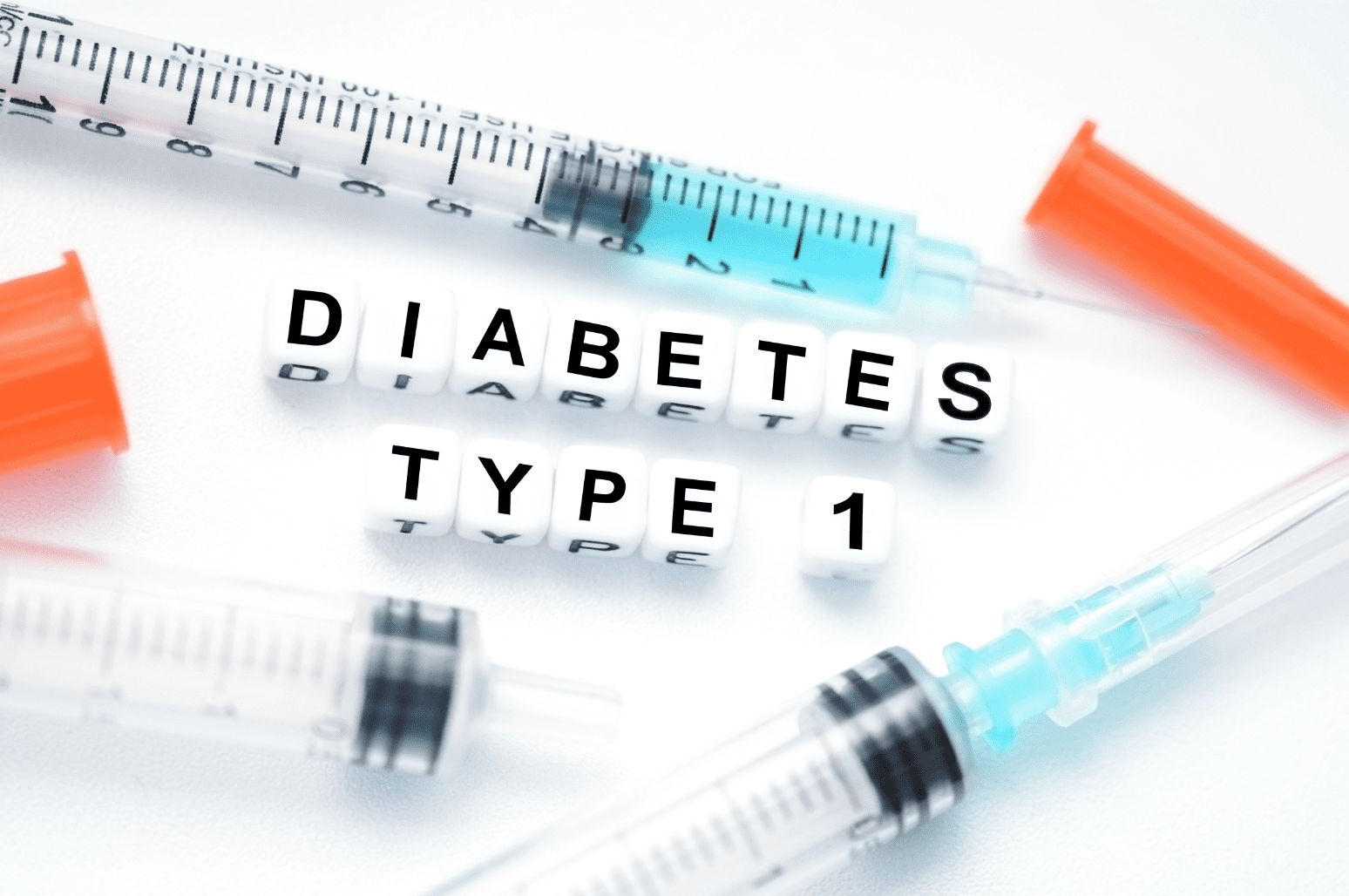Rare Sugars Like Allulose Are Changing the “Sugar-Free” Market

Could rare sugars like allulose completely shake up the keto market?
Calorie-free sweeteners have been around for decades, but only in the past twenty years (or so) have we begun to really gain an understanding of why some sweeteners are better than others. We now know that sugar alcohols like maltitol and sorbitol cause an insulin response and spike blood glucose levels (not to mention have a laxative-like effect). [1] [2] [3]
Research has also suggested potential drawbacks to the usage of artificial sweeteners (like aspartame, acesulfame potassium, and sucralose) including alterations to the gut microbiome, and increased cravings/hunger. [4] [5]
What About Erythritol and Stevia?
Luckily, within the past 5-10 years, we have seen massive strides towards the use of metabolically sound sweeteners. This means ditching sugar alcohols like maltitol, and artificial sweeteners like aspartame, and opting instead for sweeteners like stevia, erythritol, and monk fruit.
While research shows that these sweeteners do not elevate blood glucose levels and are considered safe for consumption, they aren’t always the easiest to add into products. [6] [7] [8]
Erythritol tends to have a cooling/menthol taste when added in high quantities, whereas stevia and monk fruit tends to produce a bitter after-taste. Plus, in extremely high amounts all three of these have been reported to contribute to gastric disturbances in some individuals (gas, bloating, diarrhea, etc.). That’s where rare sugars, like allulose, enter the game.

All About Allulose
Allulose is similar to sugar in terms of both physical and chemical properties, but it only has 0.4 calories per gram (sucrose has 4 calories/g). Allulose has about 70% of the sweetness level of table sugar (sucrose), meaning it can be added to food products in similar quantities. The texture and bulk of allulose also contribute to a similar exchange ratio. Compare this to a sweetener like aspartame, which is 200 times greater than table sugar, or sucralose, which is 100 times sweeter than sucrose. [9]
 This may not seem like a big issue, but when it comes to commercializing products, the quantity required means that companies have to add fillers to the product in order to add bulk. These fillers are cheap, insulin-spiking sugars like dextrose and maltodextrin. This is commonly seen in sweetener packets you would find at a coffee shop. These packets are labeled as 0 calories, but if you look at the ingredient label, you’ll see either dextrose or maltodextrin as the first ingredient (meaning there is more of that ingredient than any other).
This may not seem like a big issue, but when it comes to commercializing products, the quantity required means that companies have to add fillers to the product in order to add bulk. These fillers are cheap, insulin-spiking sugars like dextrose and maltodextrin. This is commonly seen in sweetener packets you would find at a coffee shop. These packets are labeled as 0 calories, but if you look at the ingredient label, you’ll see either dextrose or maltodextrin as the first ingredient (meaning there is more of that ingredient than any other).
Furthermore, allulose acts similar to sugar when baking, browning via Maillard reactions and enzymatic browning. Additionally, allulose is more hygroscopic than sucrose.
This increased affinity for water means that baked goods will stay moist for longer, thus increasing shelf life.
Rare Sugars In Mass Market
Companies like Quest Nutrition have already adopted the use of allulose in their products like their Hero Bars. But what about other brands? The reason why allulose isn’t in more metabolically conscious products tends to be due to price, availability, and the fact it is still relatively unknown to many. A Virginia-based start-up company called Bonumose is looking to change that.
This company claims that their patented technology will allow for the mass market consumption of allulose. According to Bonumose, their technology converts corn starch to maltodextrin, to glucose, to fructose, to allulose. This process will likely allow larger quantities to be produced at more competitive prices. Prior to this, both supply and price points were obstacles that prevented mass adoption as a sugar-replacement.
We aren’t the only ones excited about this news. In a recent announcement, Bonumose announced that it had received funding and support from Hershey’s, who will likely revamp their sugar-free line from their current use of maltitol.
Concluding Thoughts
Rare sugars like allulose have the potential to completely revolutionize the “sugar-free”, keto product game. We are excited for the new product possibilities if allulose becomes a cheaper and easier to acquire alternative to other sweeteners. Stay tuned for more updates on sugar alternatives and this startup!
References
Livesey G. Health potential of polyols as sugar replacers, with emphasis on low glycaemic properties. Nutr Res Rev. 2003 Dec;16(2):163-91. doi: 10.1079/NRR200371. PMID: 19087388.
Secchi A, Pontiroli AE, Cammelli L, Bizzi A, Cini M, Pozza G. Effects of oral administration of maltitol on plasma glucose, plasma sorbitol, and serum insulin levels in man. Klin Wochenschr. 1986 Mar 17;64(6):265-9. doi: 10.1007/BF01711933. PMID: 3520129.
Felber JP, Tappy L, Vouillamoz D, Randin JP, Jéquier E. Comparative study of maltitol and sucrose by means of continuous indirect calorimetry. JPEN J Parenter Enteral Nutr. 1987 May-Jun;11(3):250-4. doi: 10.1177/0148607187011003250. PMID: 3298708.
Ahmad SY, Friel J, Mackay D. The Effects of Non-Nutritive Artificial Sweeteners, Aspartame and Sucralose, on the Gut Microbiome in Healthy Adults: Secondary Outcomes of a Randomized Double-Blinded Crossover Clinical Trial. Nutrients. 2020 Nov 6;12(11):3408. doi: 10.3390/nu12113408. PMID: 33171964; PMCID: PMC7694690.
Ruiz-Ojeda, F. J., Plaza-Díaz, J., Sáez-Lara, M. J., & Gil, A. (2019). Effects of Sweeteners on the Gut Microbiota: A Review of Experimental Studies and Clinical Trials. Advances in nutrition (Bethesda, Md.), 10(suppl_1), S31–S48. https://doi.org/10.1093/advances/nmy037
Wölnerhanssen BK, Cajacob L, Keller N, et al. Gut hormone secretion, gastric emptying, and glycemic responses to erythritol and xylitol in lean and obese subjects. Am J Physiol Endocrinol Metab. 2016;310(11):E1053–E1061. doi:10.1152/ajpendo.00037.2016
Ashwell M. (2015). Stevia, Nature’s Zero-Calorie Sustainable Sweetener: A New Player in the Fight Against Obesity. Nutrition today, 50(3), 129–134. https://doi.org/10.1097/NT.0000000000000094
EFSA Panel on Food Additives and Flavourings (FAF), Younes, M., Aquilina, G., Engel, K. H., Fowler, P., Frutos Fernandez, M. J., Fürst, P., Gürtler, R., Gundert-Remy, U., Husøy, T., Mennes, W., Moldeus, P., Oskarsson, A., Shah, R., Waalkens-Berendsen, I., Wölfle, D., Degen, G., Herman, L., Gott, D., Leblanc, J. C., … Castle, L. (2019). Safety of use of Monk fruit extract as a food additive in different food categories. EFSA journal. European Food Safety Authority, 17(12), e05921. https://doi.org/10.2903/j.efsa.2019.5921
Jiang, S., Xiao, W., Zhu, X., Yang, P., Zheng, Z., Lu, S., Jiang, S., Zhang, G., & Liu, J. (2020). Review on D-Allulose: In vivo Metabolism, Catalytic Mechanism, Engineering Strain Construction, Bio-Production Technology. Frontiers in bioengineering and biotechnology, 8, 26. https://doi.org/10.3389/fbioe.2020.00026









